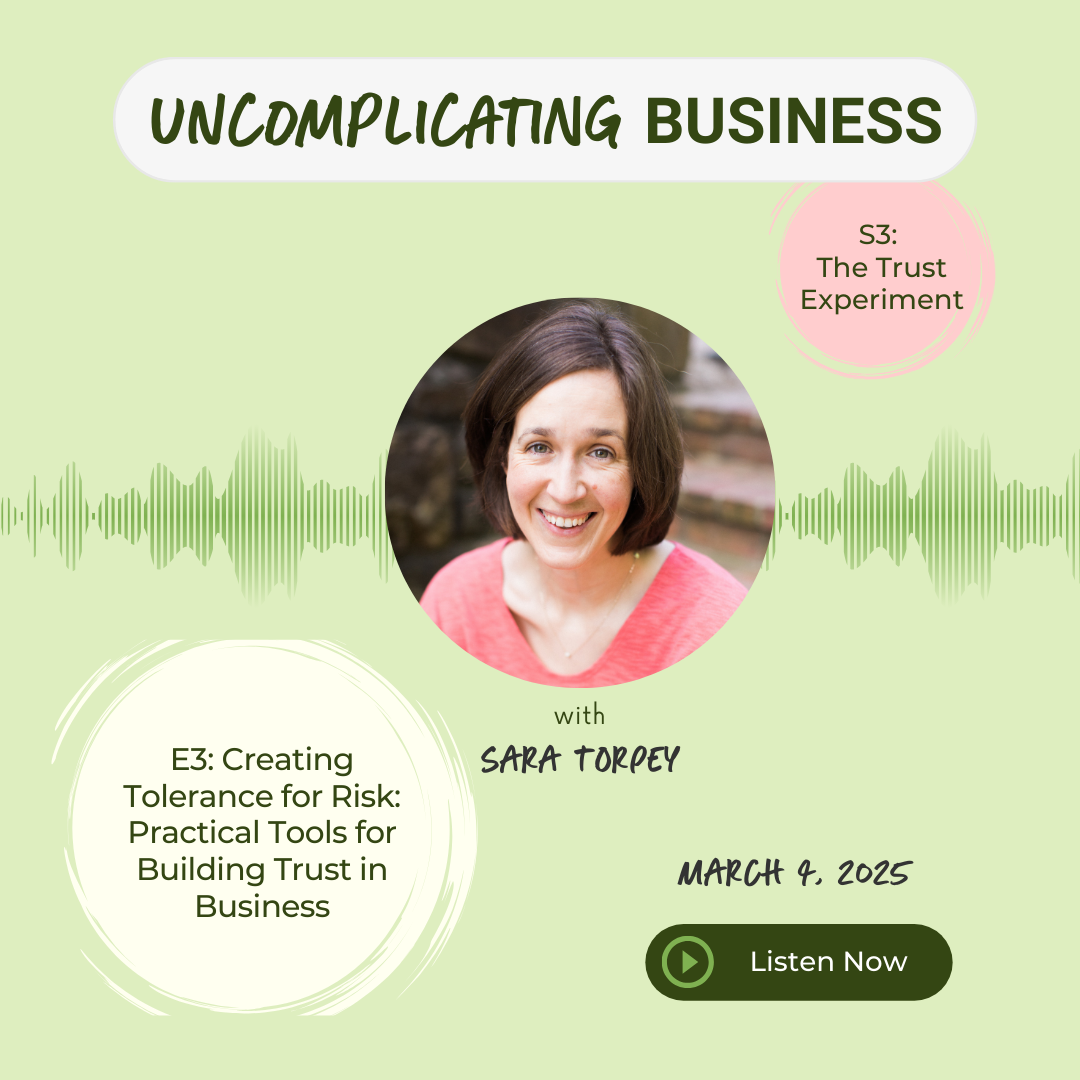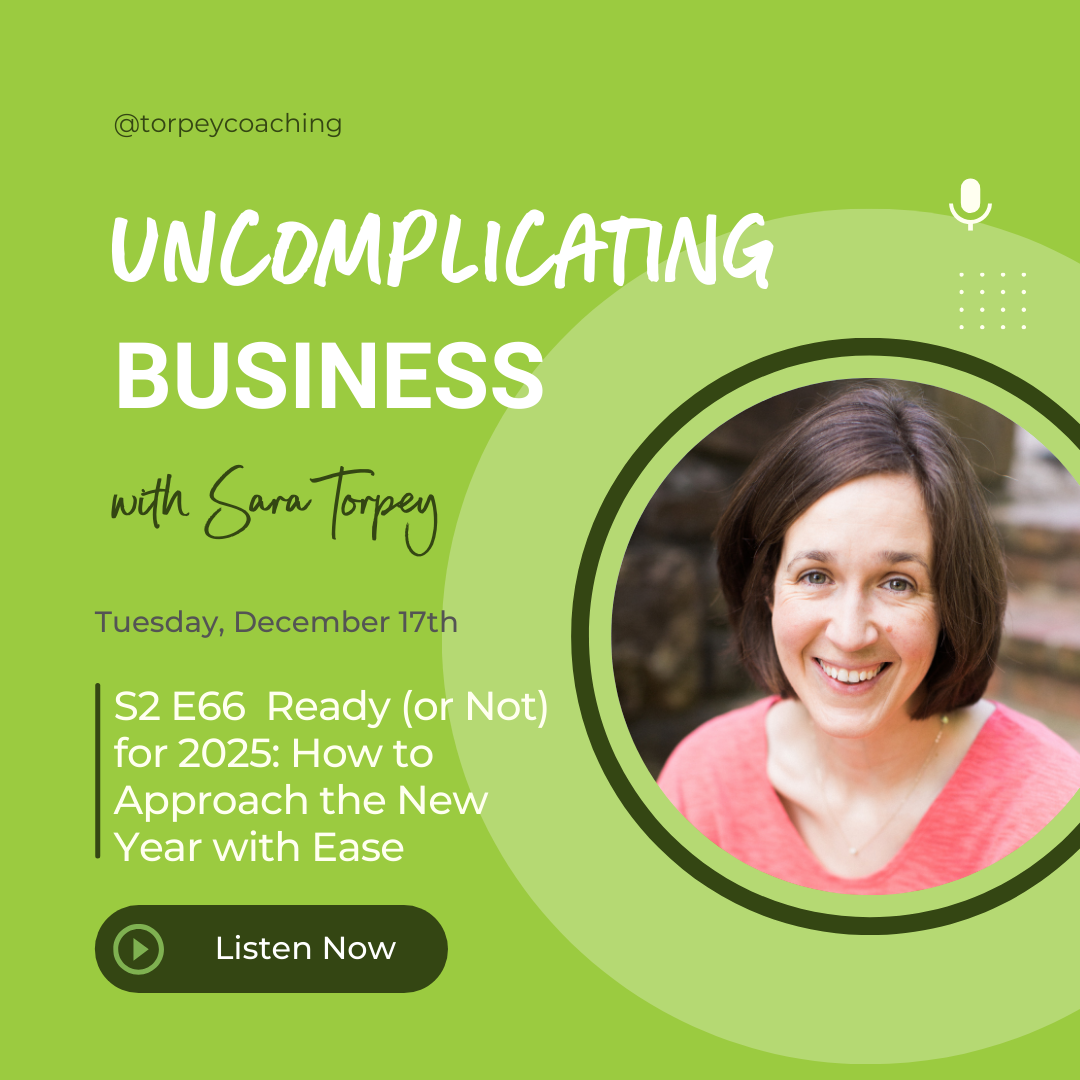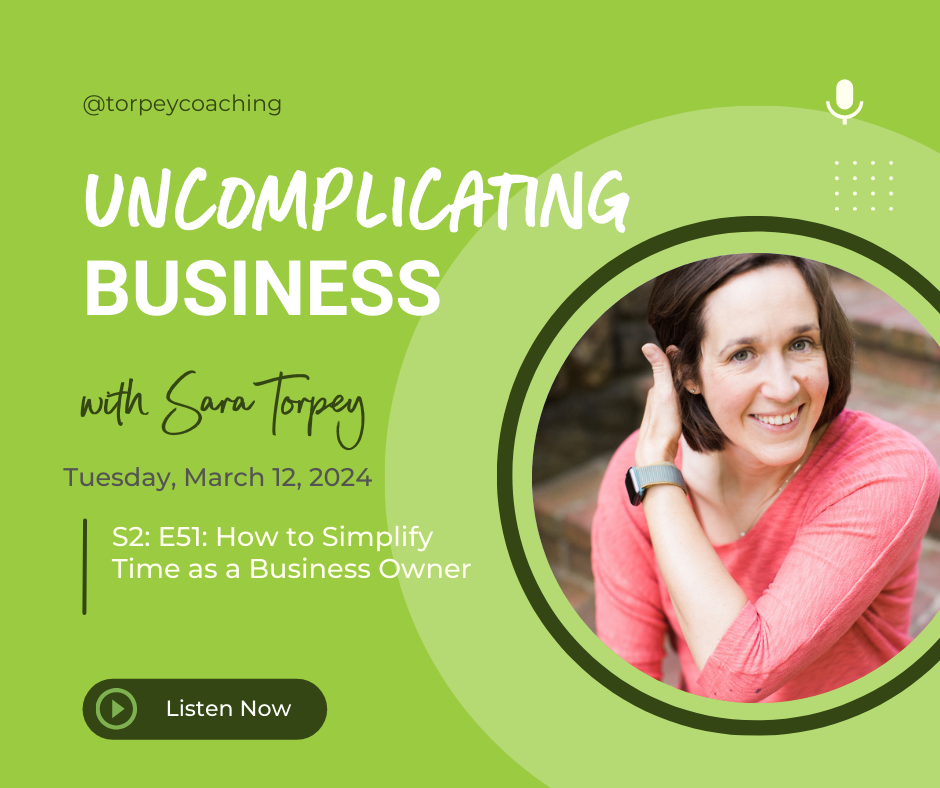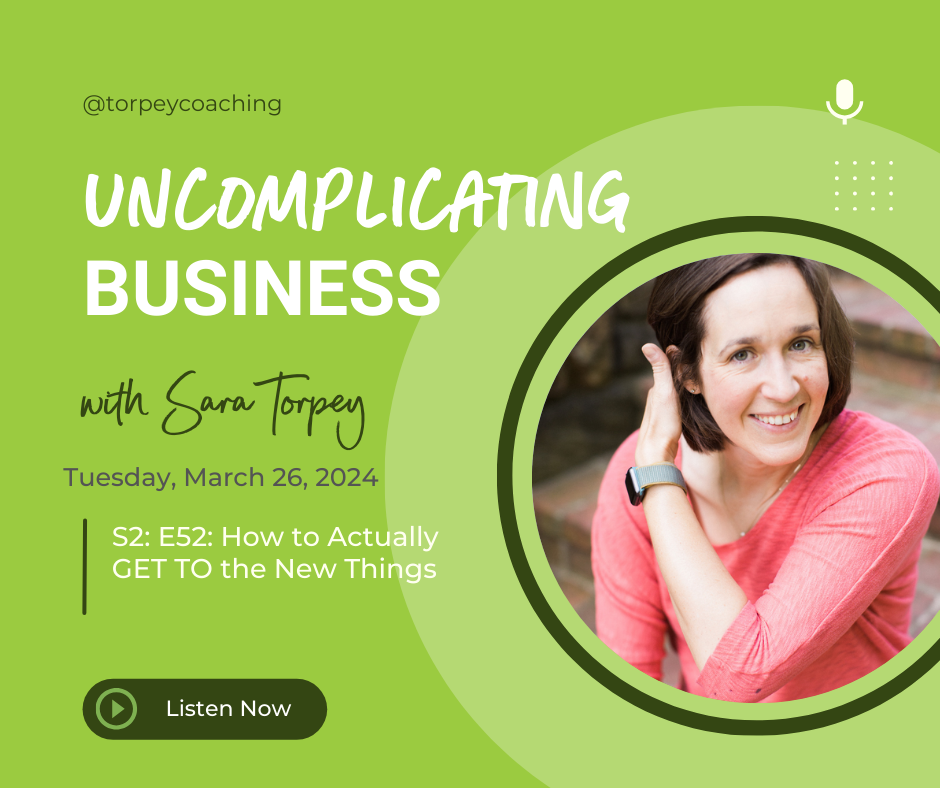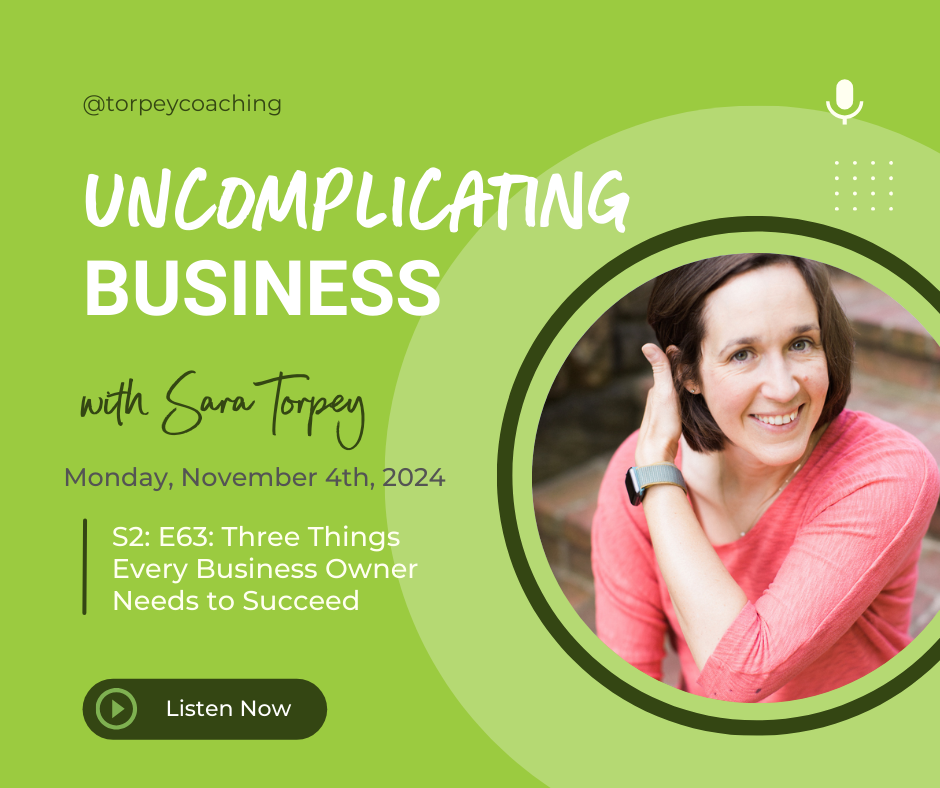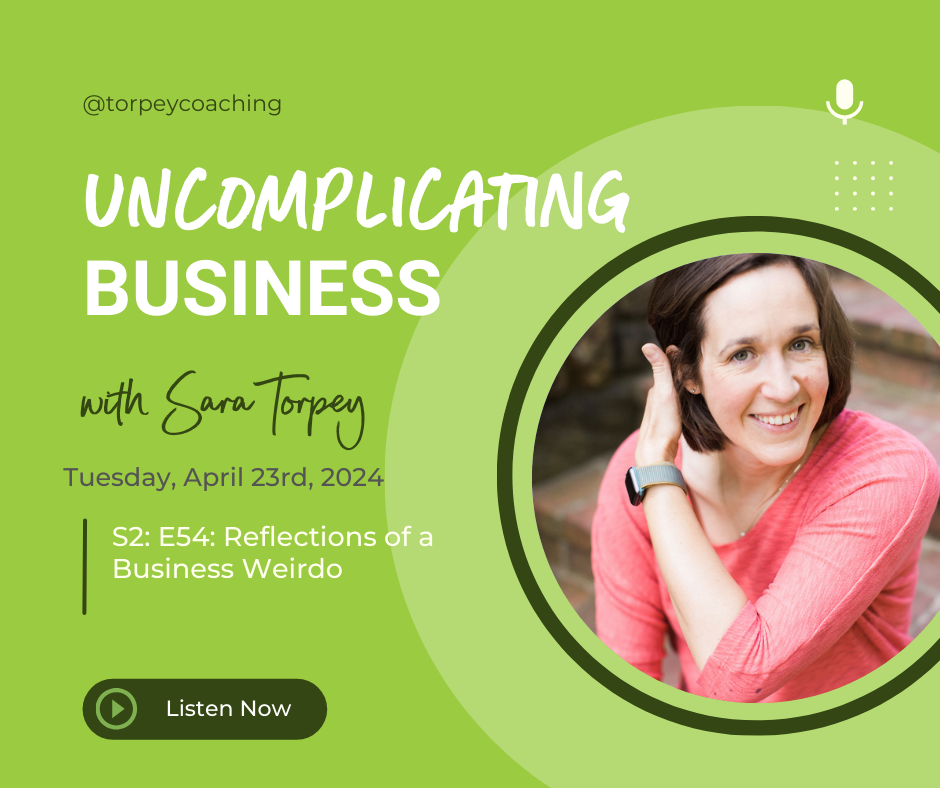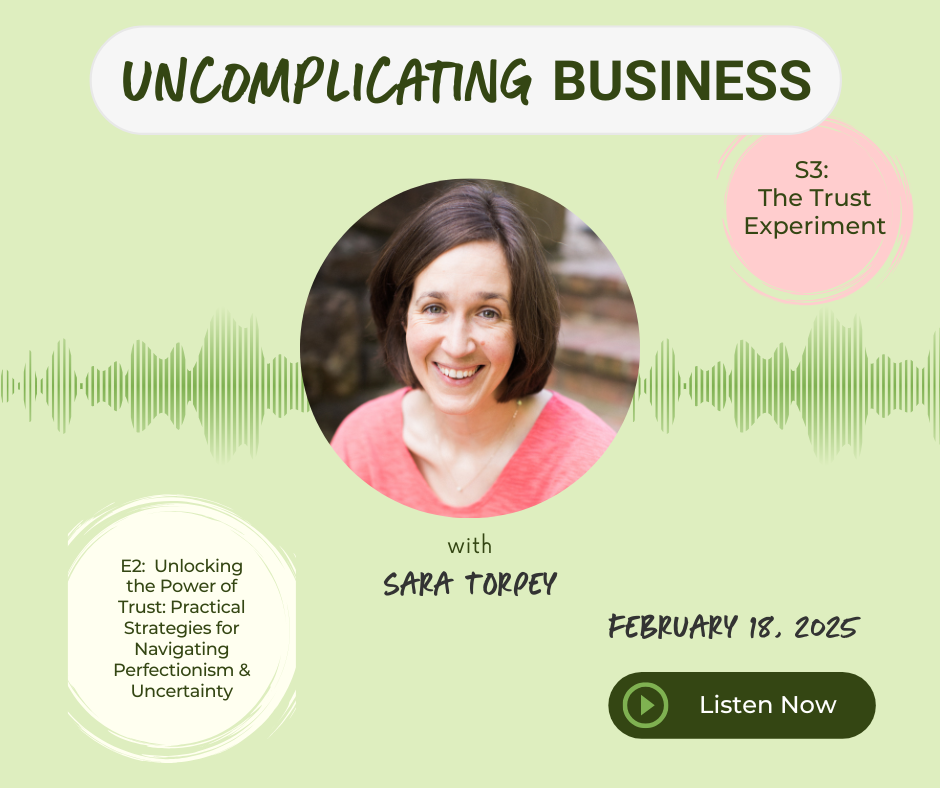How to Know You’re Not Trusting Yourself as Business Owner (And What to do Next!)
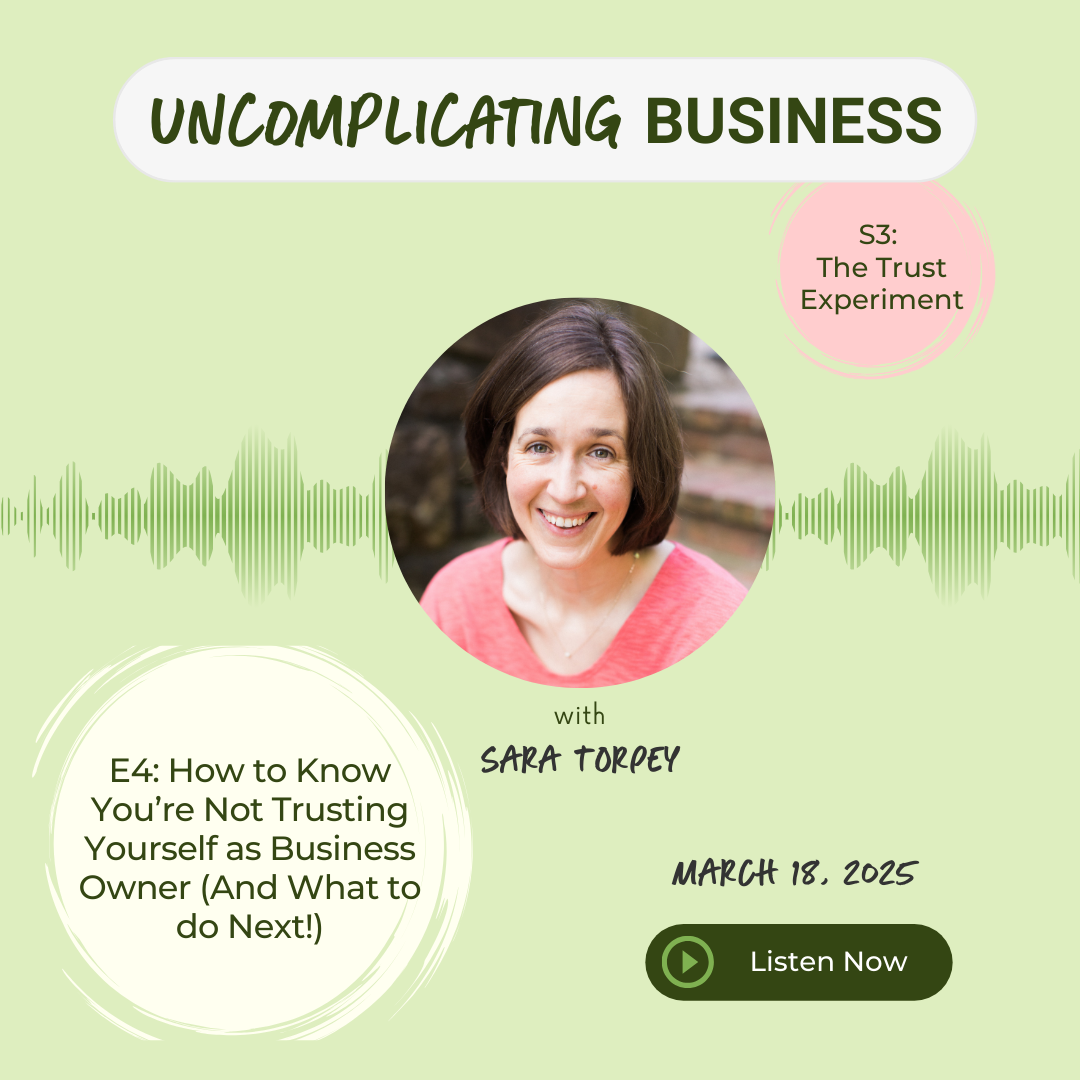
How to Know You’re Not Trusting Yourself
As a business owner, you are constantly navigating decisions that shape the success and direction of your business. Business ownership can be filled with uncertainties, and sometimes these lead you to second-guess yourself. But what happens when that doubt becomes a pattern and affects your ability to make confident decisions? How do you know when you're not trusting yourself in your business? And more importantly, what steps can you take to rebuild that trust?
In this blog post, we’ll dive into the common signs that show you may not be trusting yourself as a business owner and outline some practical steps you can take to regain your self-trust, so you can make decisions with confidence and ease.
To listen to this content rather than read it, you can click play in the player above or listen on Apple Podcasts (or your favorite platform!)
Or watch on YouTube
here.
The Early Signs of Not Trusting Yourself
Overthinking and Over-planning: One of the clearest indicators that you’re not trusting yourself is constant overthinking. When you find yourself asking questions like, Is this the right decision? Did I do this right? or Should I do it differently?— particularly in an endless loop… you’re in the land of self-doubt. Constantly questioning your actions or wondering if there’s a better way to do something often comes from a lack of trust in your ability to make decisions and take action.
The “Do It Right” Trap: Another common sign is the overpowering need to “do it right.” When you’re focused solely on perfection or avoiding mistakes, you’re often trying to meet an external definition of what’s “right,” which may not even line up with your own values or business goals.
Being stuck here limits your creativity and growth because, in business & in life, things rarely go perfectly on the first try. The key to success is iteration, learning from failures, and adapting. Striving for perfection is a surefire way to stay stuck in indecision.
Constantly Seeking a “Better Way”: If you find yourself frequently switching approaches, tools, or systems without giving any one option a fair chance to work, it’s a clear sign that you’re not trusting yourself. Whether it’s a new software, a marketing tactic, or a sales process, constantly adjusting without following through creates confusion and stalls progress.
The Subtler Indicators of Distrust
While the obvious signs of not trusting yourself are easy to spot, there are subtler behaviors that often go unnoticed, yet they can be just as damaging to your business growth.
Solving Problems You Don’t Have: It’s easy to get caught up in planning for hypothetical problems in the future, especially when you're feeling uncertain. However, if you're constantly solving problems you don’t have yet—such as worrying about what could go wrong in six months (which we all do, by the way, we just can’t spend all of our time here)—you're not trusting your ability to handle challenges as they come. Instead, focus on the present and trust that you'll be able to solve future problems when the time arrives.
Over-Learning and Over-Planning: If you find yourself spending too much time in the “learning” phase—whether it’s taking more courses or getting another certification—or endlessly planning without executing, it's a sign that you're not trusting your current knowledge and expertise. You already have the skills to succeed, but you might be holding yourself back because you’re afraid to take action without feeling fully “prepared.” Trust that what you know is enough and start taking steps forward.
Procrastination: One of the most subtle forms of not trusting yourself is procrastination. If you're not doing the work, it’s often because you don’t trust your plan, your skills, or your ability to execute. You may be waiting for the “right moment” or for someone else to tell you it’s okay to move forward. But waiting is a clear sign that you're not trusting yourself to take the next step, even if it’s imperfect.
Four Steps to Build Self-Trust in Your Business
Now that you’ve identified the signs of not trusting yourself, it’s time to take action. Here’s a simple, yet powerful process to help you rebuild trust in yourself as a business owner:
Step 1: Know Your Tells Understanding what lack of trust looks like and sounds like in your day-to-day work is the first step toward regaining trust in yourself. These “tells” could include overthinking, procrastination, or feeling the urge to learn more before acting. Be mindful of these patterns and learn to recognize when they show up.
Step 2: Tie a Bell to Your Tells Once you know what your tells are, it's time to “tie a bell” to them. The idea here is to bring awareness to these moments of doubt as soon as they happen. When you start to question yourself or feel stuck, take a moment to acknowledge it. This step is all about mindfulness and recognizing when you’re slipping into a state of self-doubt.
Step 3: Check In When you notice you’re not trusting yourself, ask yourself, What would I be doing right now if I truly trusted myself? Would you be moving forward with your plan or making decisions without hesitation? This question helps you identify what a more confident, trusting version of yourself would do in the same situation.
Step 4: Take Action The final step is to take action. Trusting yourself isn’t just about thinking through the problem or acknowledging your fears—it’s about doing something about it. Whether it’s making a decision, taking the first step toward a goal, or trusting your instincts, the act of doing reinforces your belief in your abilities. Don’t let fear or doubt hold you back from moving forward.
Key Questions to Ask Yourself
When you're in a moment of doubt, ask yourself these powerful questions:
- What does trust in myself look like and sound like in this moment?
- Do I trust my expertise and experience enough to move forward without waiting for validation from others?
These questions help you refocus on your strengths and remind you that trust is a choice. Trusting yourself is not about being 100% certain; it’s about taking action with confidence even when the outcome is uncertain
Moving Forward with Confidence
Regaining trust in yourself as a business owner is an ongoing process. We all know that our internal levels of trust are neither constant or always trending upwards – practices like these are important so that we can catch downward trends early. Building and rebuilding trust takes time and practice, but by recognizing the signs of self-doubt and following a clear action plan, you can steadily build a more trusting mindset.
Remember, trust isn’t about certainty—it’s about having faith in your ability to make decisions, learn from mistakes, and adapt. The more you trust yourself, the easier your business will become, because you’ll be able to move through challenges with confidence and grace.
If you’re ready to dive deeper into this process and get support on your journey, start with grabbing the freebie, Change 3 Words, Change your Sales Results. You’ll get simple, practical strategies for adjusting your mindset around sales (with trust) so that you can grow your business sooner than later.
